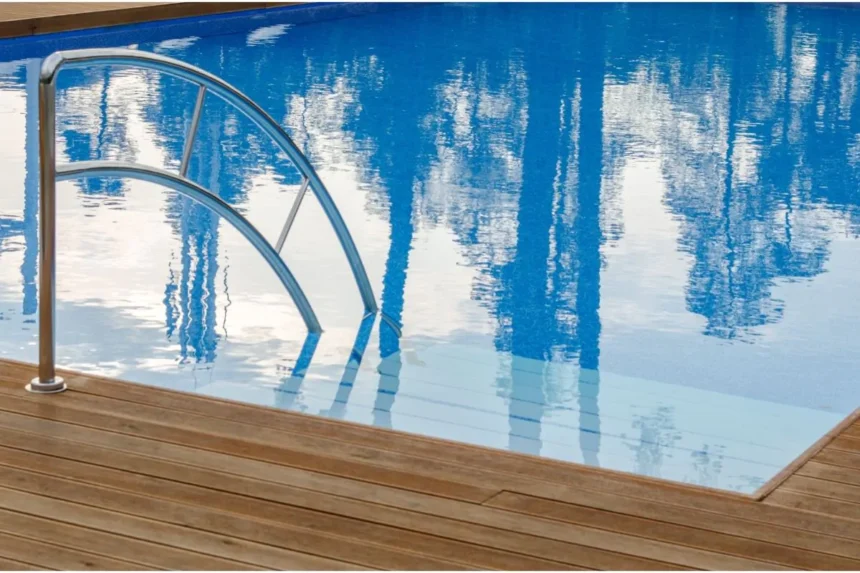Building a deck can be an exciting project, adding value to your home and creating a wonderful space for relaxation and entertainment. Whether you’re working with a pool deck builder or planning a more traditional design, it’s crucial to understand the financial aspect of deck construction before you roll up your sleeves and get started. In this article, we’ll dive into the average costs associated with building a new deck, exploring various factors that can influence these expenses.
Comprehending Deck Types
When it comes to decks, one size doesn’t fit all. The type of deck you choose will significantly impact the overall cost. You might opt for a basic wooden deck, which is generally more affordable, or go for a composite deck that offers durability and low maintenance but comes with a higher price tag. Other options include vinyl and aluminum decks, each with their unique features and price points. So, understanding the differences can help you make an informed decision that aligns with your budget and lifestyle.
The Cost of Materials
One of the most significant factors in deck construction costs is the material. For instance, pressure-treated wood is often the most budget-friendly option, typically costing between $15 and $25 per square foot. On the other hand, hardwoods like cedar or redwood can range from $30 to $45 per square foot, while composite materials may set you back between $30 and $60 per square foot. The choice of material not only affects your budget but also impacts the long-term maintenance and appearance of your deck.
Labor Costs
Labor costs are another critical component to consider when budgeting for your new deck. Depending on where you live and the complexity of your deck design, labor can account for a significant portion of your total expenses. Typically, you might expect to pay anywhere from $20 to $60 per hour for a skilled carpenter. If you’re hiring a professional deck builder, they may charge a flat fee based on the size and complexity of your project, which could range from $1,000 to $5,000 or more.
Size and Design Considerations
The size and design of your deck play a substantial role in determining the overall cost. A small, simple deck may cost as little as $2,000, while a larger, multi-level deck with intricate features can easily exceed $10,000. When designing your deck, consider how you intend to use the space. Do you envision hosting barbecues, lounging in the sun, or simply enjoying a quiet evening? Your design choices will directly influence your budget, so it’s essential to have a clear vision before diving in.
Permits and Regulations
Before you break ground, don’t forget about permits and regulations. Depending on where you live, you may need to secure a building permit, which can range from $50 to $500. It’s wise to check local regulations to ensure your deck complies with zoning laws and safety standards. Failing to obtain the necessary permits can lead to costly fines and might delay your project, so it’s best to handle this step upfront.
Additional Features and Customizations
If you’re looking to personalize your deck, be prepared for additional costs. Features like built-in seating, railings, lighting, and even outdoor kitchens can enhance the beauty and functionality of your deck but will also increase the overall price. For example, adding a set of LED lights can add anywhere from $300 to $800 to your budget, while custom railings can cost between $1,000 and $3,000 depending on the materials used.
Maintenance and Long-term Costs
While it’s essential to focus on the initial costs of building your deck, don’t overlook the long-term maintenance expenses. Wooden decks require regular staining and sealing to protect against the elements, which can cost several hundred dollars every few years. On the other hand, composite decks may require less maintenance, saving you money over time. So, when planning your deck, consider not just the upfront costs but also how much you’re willing to invest in upkeep.
DIY vs. Hiring Professionals
One way to cut costs is to take on the project yourself. If you’re handy and enjoy DIY projects, building your own deck can save you a significant amount of money. However, it’s crucial to have a solid understanding of carpentry and deck-building techniques. If you make mistakes, the savings can quickly vanish as you try to fix them. If you’re uncertain about your skills, hiring a professional may be the best route to ensure a high-quality, safe result.
Budgeting Tips for Your Deck Project
Creating a budget for your deck project can feel overwhelming, but it doesn’t have to be. Start by determining how much you’re willing to spend. Then, research the average costs for the materials and labor in your area. Don’t forget to set aside a contingency fund for unexpected expenses. A good rule of thumb is to allocate an extra 10-20% of your total budget for surprises. This way, you won’t find yourself in a financial bind if costs exceed your initial estimates.
Conclusion
Building a new deck is a fantastic way to enhance your outdoor living space, but understanding the average costs is essential for a successful project. From material choices to labor expenses and custom features, various factors will influence your budget. By planning carefully and considering your long-term maintenance needs, you can create a beautiful deck that not only meets your needs but also fits within your financial plan. Remember, a well-built deck can provide years of enjoyment and increase your home’s value, making it a worthy investment.


